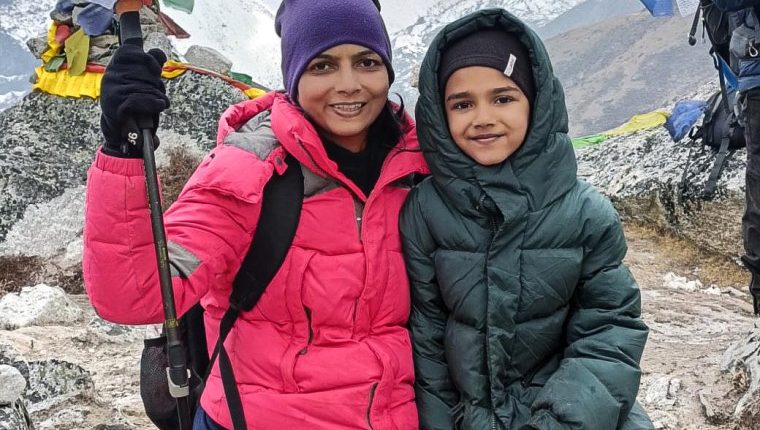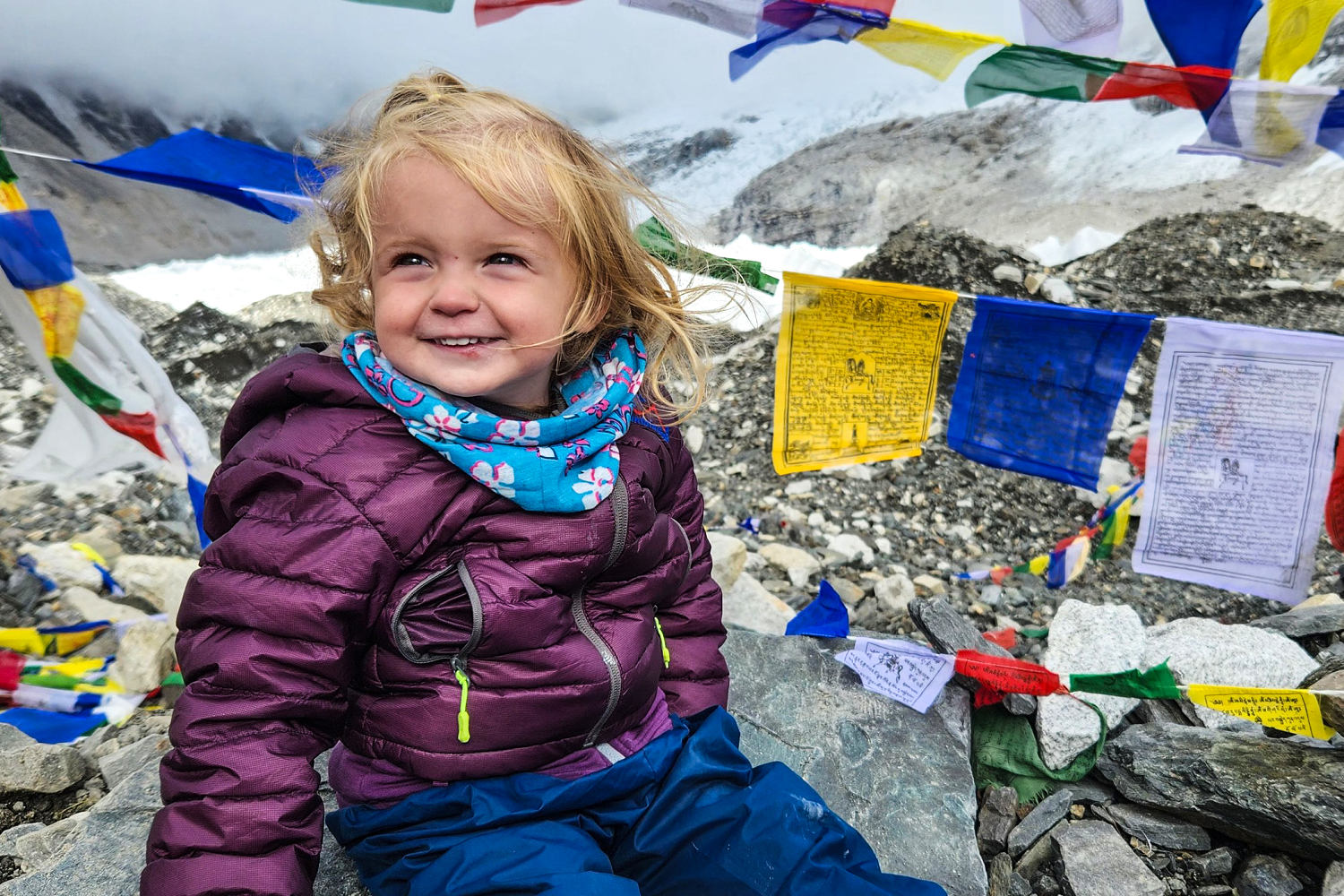When her daughter, Arishka, was just 6 years old, Dimple Laddha took her to Everest Base Camp.
The camp sits at an elevation of around 17,600 feet, where the oxygen concentration is nearly 50% less than at sea level. Winter temperatures can drop below freezing at night. The standard 80-mile hike from the town of Lukla to Base Camp and back is often attempted by athletes and adventure seekers over 10 to 12 days. It involves an elevation gain of more than 8,000 feet.
Dimple said that for two years before their trip in April, she and Arishka had been going on 5-mile walks near their house in Pune, India, and she decided her daughter was ready for a challenge.
“Kids in general have a lot of energy,” Dimple said, adding: “I find it’s the duty of the parents to channel that energy in the right direction.”
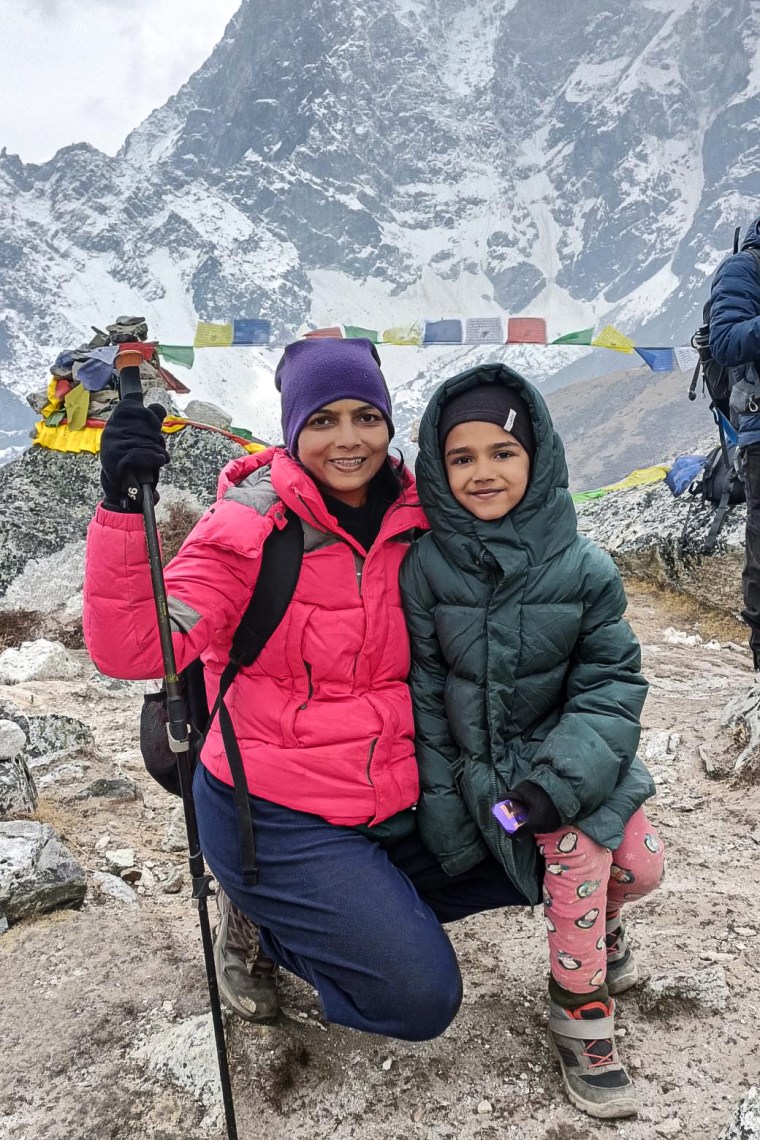
When planning the trip, Dimple Googled whether small children had gone to Base Camp in the past, and said she found that a 4-year-old girl had indeed completed the climb.
In fact, the Laddha family is one of at least a handful who have attempted the journey with young kids in recent years.
A couple from Scotland made headlines earlier this year for having reached Base Camp in the fall carrying their 2-year-old. David Šifra told NBC News that he took his two children, Zara and Alex, there in December, when they were 7 and 4. And Chris and Cindy Matulis did the trek with their four kids in 2022, when Chris’ job gave him six months off.
“We really needed to seize the moment,” said Cindy, who has traveled around the world with her family, now based in New Hampshire. She described the trip as “the ultimate bonding time.” Their youngest, Hazel, turned 2 during the trek.
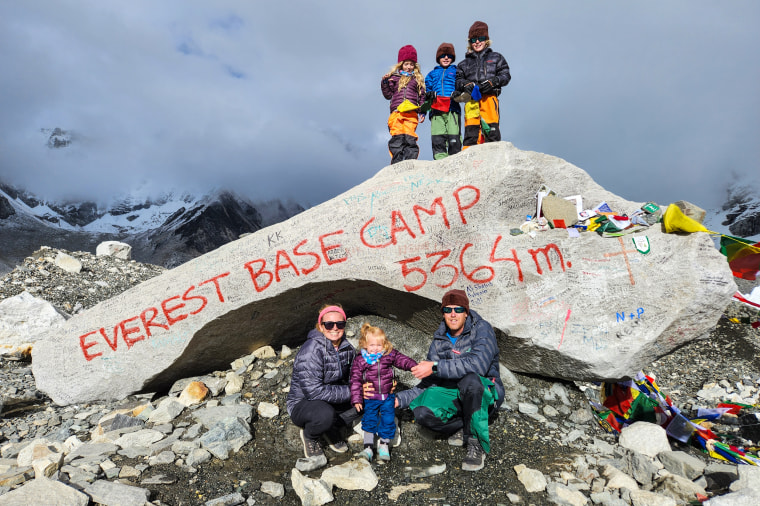
Tens of thousands of people journey to Base Camp each year, but anyone who isn’t used to high altitudes faces a risk of acute mountain sickness, according to the Wilderness Medical Society. At elevations above 8,200 feet, reduced air pressure and low oxygen levels can cause headache, fatigue, nausea and shortness of breath. In rare cases, the condition can be life-threatening.
Dr. Scott McIntosh, a professor of emergency medicine at the University of Utah and a member of the Wilderness Medical Society, said the added weight of carrying a toddler could make parents more vulnerable to acute mountain sickness. Small children may also have trouble vocalizing if they’re struggling or in pain during a trek, and cold temperatures, even more than altitude, can be the main challenge for them.
“Usually young kids, especially in the age of 2 to 5, don’t have experience in the outdoors like their parents might, so that could get young children or families into trouble if they’re not prepared for adverse weather,” McIntosh said.
Dimple Laddha, who did the trek with Arishka as part of a mountaineering group, said she contacted the group for advice about whether a 6-year-old could handle it.
“They were like, ‘Generally we do not not suggest children less than 12 years of age to do it … but we can try,’” she said.
To gauge Arishka’s interest, Dimple said, she showed her YouTube videos of the climb.
“She was all excited, although she is too young to understand the importance of it. But she had given the go-ahead,” Dimple said.
On the trek, she said, Arishka needed breaks every 15 to 20 minutes, so the duo often trailed behind the group with a guide. But Arishka enjoyed crossing the high-cable bridges and witnessing her first snowfall, her mother said.
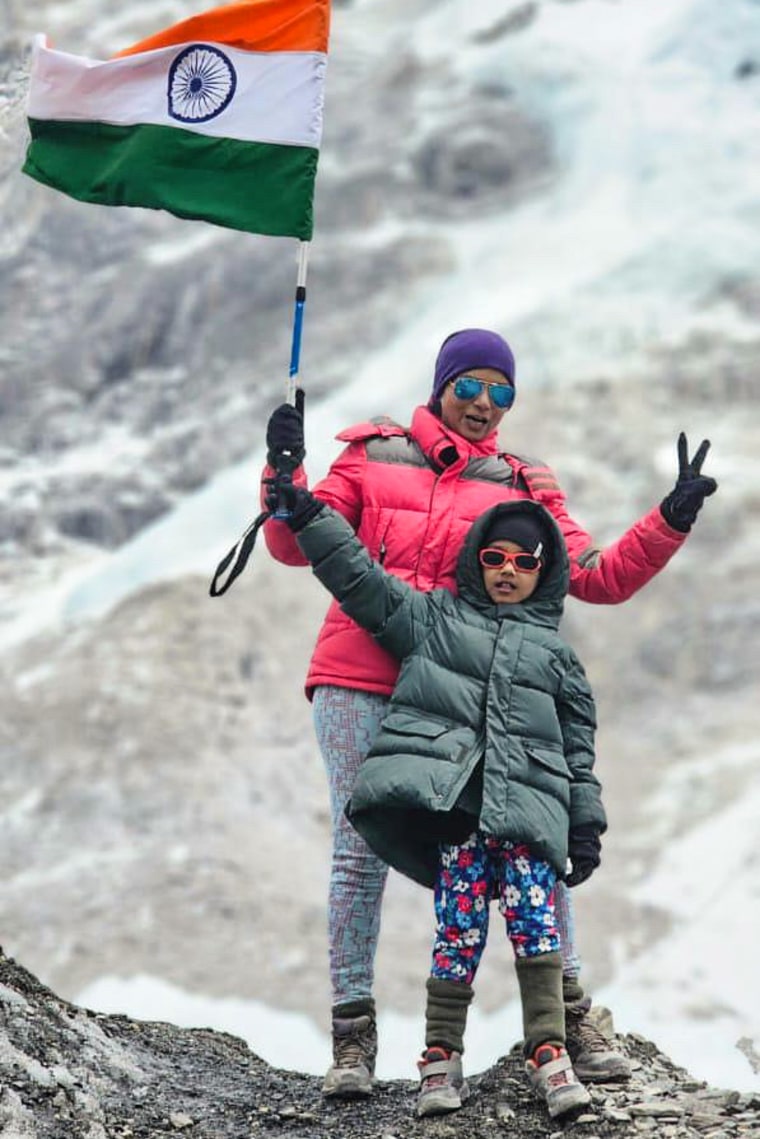
“Other trekkers who we met on the way, they all took inspiration from Arishka,” Dimple said. “They were like, ‘If a girl as young as her can do it, then we can certainly do it.’”
They made it to base camp in eight days.
The Matulis family took it more slowly — ascending over 19 days starting from a mountain town at a lower elevation than the traditional starting point in Lukla.
The journey had some setbacks, Cindy said: Carrying Hazel was sometimes a struggle, especially on a day when rain created slippery mud on the trail that rose to their knees.
“I was absolutely miserable,” Cindy said. “I had Hazel and I had to be so careful and it was so hard. I ended up crying that day. I was just like, ‘I can’t do this anymore.’”
At another point, she said, their son Hobie, then age 11, hit his head and had to be examined by a medic. Henry, who was 9 at the time, got a fever. And Hallie, then age 6, developed a deep blister that briefly prevented her from walking.
Then there was the day Cindy noticed blood on her shirt while carrying Hazel.
“I was thinking, ‘Oh, my gosh, there’s something wrong with Hazel. Did her leg chafe in the baby carrier? Did she get cut on something?’” Cindy said.
The blood turned out to be coming from a leech on Cindy’s stomach.
At another point in the trip, she said, the whole family pulled leeches off their feet.
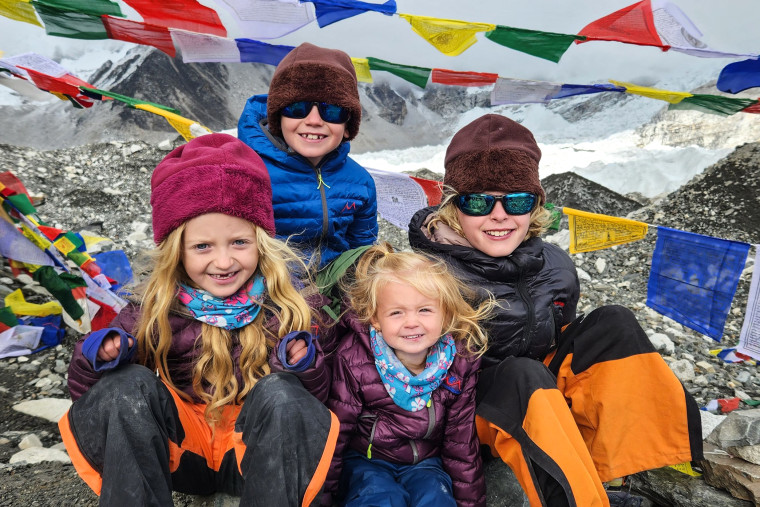
Still, Cindy said, “You don’t have the distractions of cleaning your house, technology — you’re just in nature, walking and talking, and you learn so much about your kids.”
Now, she added, her children are proud of what they accomplished.
David Šifra, a 51-year-old adventurer who lives in Malaysia with his wife and kids, similarly said he watched Zara develop self-esteem on the trail as people congratulated her. The biggest challenge, he said, was getting his daughter to stay bundled in her sleeping bag.
“At night, she was always climbing out,” David said. “I just put her back and she screamed, ‘Let me go! Let me go!’”
His kids were used to doing 3-to-6-mile hikes every day, David said, so he wasn’t concerned about their strength. But a doctor told him to be careful about the temperature, which was just above freezing at night at that time of year.
The Šifra family took 18 days to reach Base Camp, after starting farther West than the standard hike, in a town called Jiri.
David said Zara is “so strong now mentally — she talks directly to the adults.”
Overall, McIntosh said, there’s no real threshold for how old kids have to be before going to Base Camp: “Children are fairly resilient.”
Source: | This article originally belongs to Nbcnews.com
